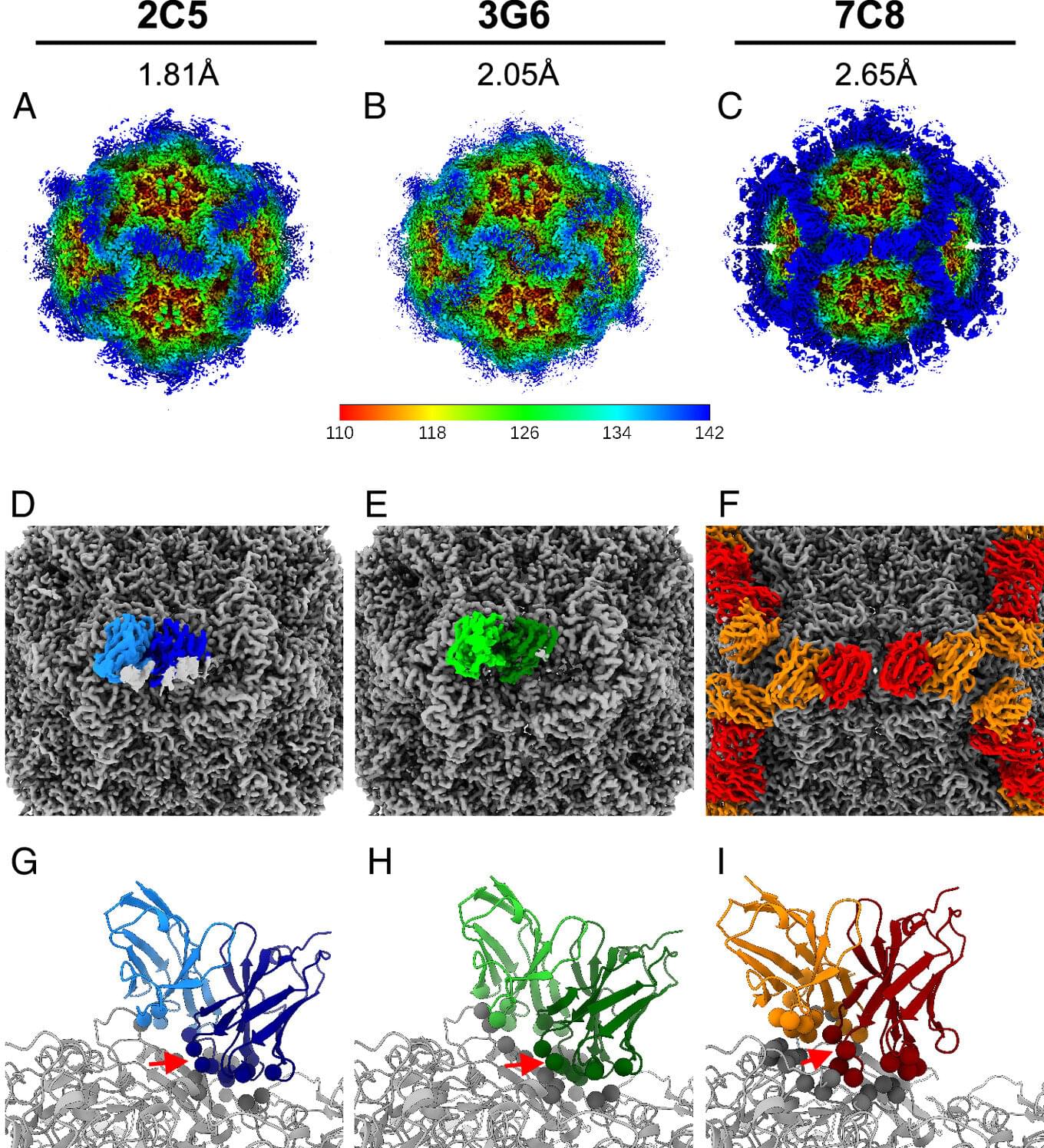In 1978, parvovirus—then common to cats—started infecting dogs in Europe. The virus spread quickly around the globe, killing hundreds of thousands of dogs, mostly puppies—until a team of Cornell researchers led by the late Leland “Skip” Carmichael developed a vaccine, the derivatives of which are still used today.
“It was really at the time a worldwide relief, a miracle,” said Colin Parrish, interim director of the Baker Institute for Animal Health, who joined Carmichael’s lab as a graduate student in 1980 and is now senior author of a new study that continues to advance our understandings of the virus and how the vaccine works.
The paper, published Feb. 14 in Proceedings of the National Academy of Sciences, shows how host antibodies bind to parvovirus and neutralize it. The findings shed light on fundamental interactions between viruses and their hosts, and open new doors for improving current vaccines and treatments for infected animals.
